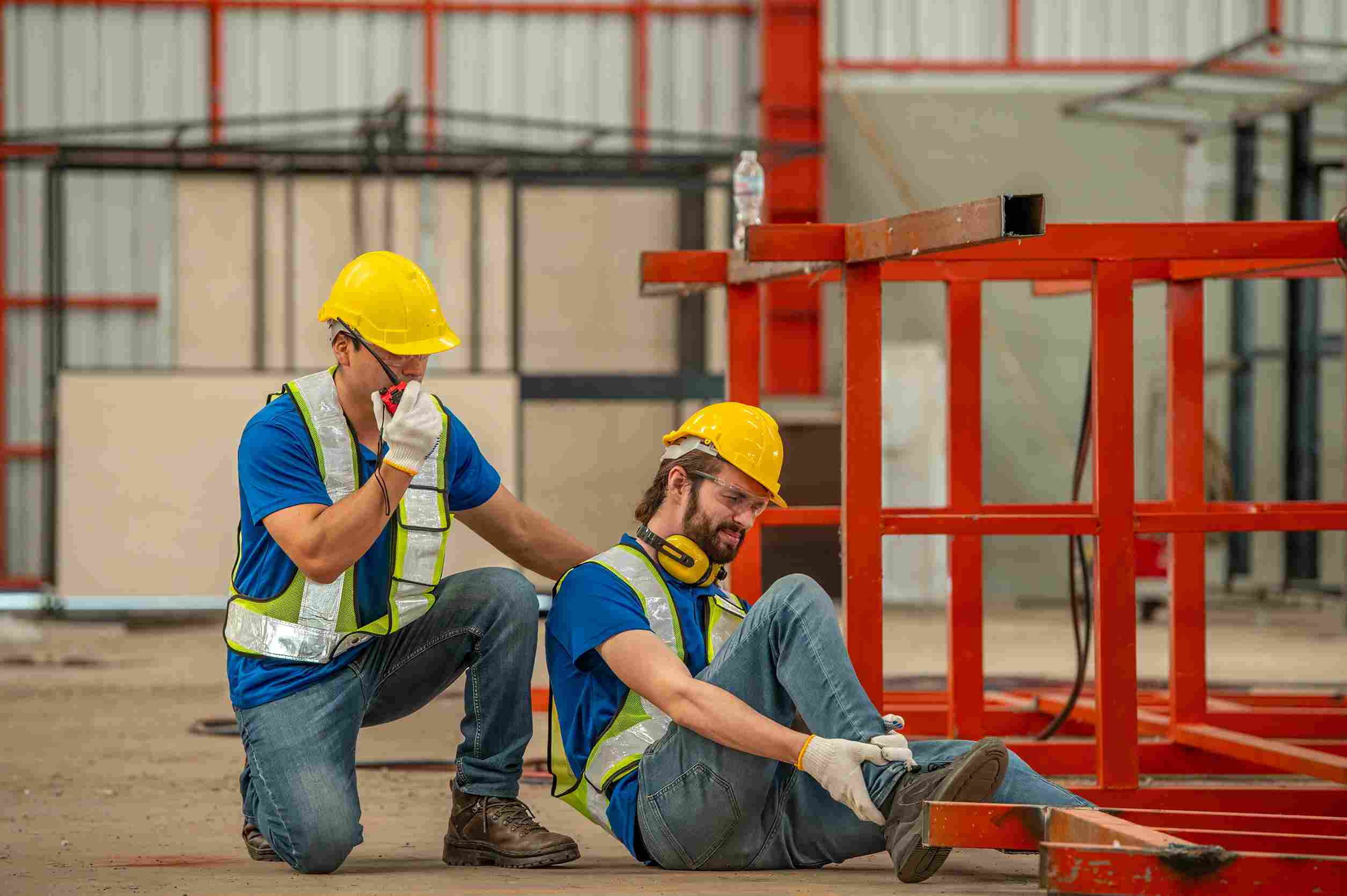When you’re injured on the job, you’re likely overwhelmed, stressed, and in pain. Between treatment plans, insurance calls, and employer paperwork, one document might seem harmless—a medical release form. But what many Florida workers don’t realize is that signing one of these forms too soon—or without legal review—can have serious consequences for your workers’ compensation claim.
As a trusted workers’ compensation lawyer in Florida, Sternberg | Forsythe, P.A., has seen far too many injured workers unknowingly damage their claims by signing broad medical authorizations.
This blog explores the risks of these documents, what you should know before signing anything, and how a Florida work injury attorney can help protect your rights.
What Is a Medical Release Form?
A medical release form gives someone (often an insurance company) access to your personal medical records. After a Florida work accident, your employer’s insurance carrier may send you a form requesting your signature so they can review your medical history and make decisions about your workers’ compensation benefits.
At first glance, this might seem like standard procedure. But here’s the problem: many of these forms are overly broad, allowing the insurance company to dig into your entire medical history, not just the treatment related to your current injury.
Why Insurers Want Your Signature
Insurance companies are businesses. Their goal is to pay out as little as possible. When they request a blanket medical release, they’re often looking for:
- Pre-existing conditions, they can blame your injury on
- Gaps in treatment that may suggest you’re not seriously injured
- Unrelated past injuries to argue your current condition isn’t work-related
- Mental health history that could be used to cast doubt on pain complaints
- Prior medications or diagnoses that could justify a denial
In 2025, with the rise of AI-assisted claims processing, insurers are more aggressive than ever in using medical data to deny, delay, or minimize claims. That’s why working with a work accident lawyer in FL before signing anything is more important than ever.
Real Risk: Giving Up Your Privacy—and Your Leverage
When you sign an unrestricted medical release form:
- You may unknowingly authorize full access to decades of private health records
- The insurer can cherry-pick irrelevant information to cast doubt on your credibility
- You weaken your legal argument by providing evidence they wouldn’t otherwise obtain
- You may lose out on fair compensation for your injury
Many Florida workers don’t realize that medical privacy is protected by law, but when you sign a release, you’re voluntarily waiving that protection. Once that information is in the hands of the insurer, it’s out there—and it can’t be undone.
Common Mistakes Workers Make

Even honest and hardworking people trying to follow the rules can make serious mistakes. Here are a few of the most common mistakes we see as a Florida work injury attorney:
1. Assuming It’s Mandatory
Most workers believe that they have no choice but to sign. In reality, you have the right to consult with an attorney first. In some cases, you may not need to sign.
2. Not Reading the Fine Print
Buried in the form may be language granting “full access to all records” or “authorization for any provider,” which is far broader than necessary for your current injury.
3. Not Limiting the Scope
You can (and should) limit the release to only records related to your work injury and only from the date of the injury forward.
4. Trusting the Insurance Adjuster’s Advice
Insurance adjusters often say, “This is just routine,” or “We need this to pay your bills.” But they are not on your side. Their goal is to settle your case cheaply and quickly.
How a Florida Work Injury Attorney Can Help
Navigating workers’ comp laws in Florida isn’t easy. Having a knowledgeable attorney by your side can make a world of difference.
Here’s how a Florida work injury attorney can help protect you from unfair release forms:
- Reviewing documents before you sign
- Redacting or limiting the scope of medical authorizations
- Objecting to overreach by the insurance company
- Challenging denials based on irrelevant medical history
- Filing complaints if your privacy rights are violated
At Sternberg | Forsythe, P.A., we routinely help injured workers push back against invasive tactics by insurers and employers. We don’t let our clients get bullied, and we know how to fight for full and fair compensation under Florida law.
What Florida Law Says About Medical Records in Workers’ Comp Claims
Florida Statutes § 440.13 outlines the obligations and rights of injured workers regarding medical care and disclosure. While the insurance carrier does have the right to access relevant medical records, the law does not entitle them to your entire medical history without limits.
The Florida Division of Workers’ Compensation encourages injured employees to only share records pertinent to the injury in question. If the insurer insists on access beyond that, your attorney can file a motion with the judge of compensation claims.
How This Plays Out in Real Life
Let’s look at a common (and costly) scenario:
Case Study: Maria, a hotel housekeeper in Miami, injured her back lifting a heavy cart. The insurance company asked her to sign a release. Without consulting a lawyer, she did. They discovered an old chiropractic visit from 2019—unrelated to her job—and used it to deny her claim, arguing the pain was pre-existing.
A skilled work accident lawyer in FL could have prevented this by limiting the release to post-accident treatment only.
What to Do If You’ve Already Signed a Broad Release
If you’ve already signed a general medical release form after a Florida work accident, all is not lost—but you should act quickly:
- Contact a Florida work injury attorney immediately
- Request a copy of the signed form
- Check if irrelevant records have been accessed
- File a privacy objection if needed
- Strategize to challenge any unjust denials
The longer you wait, the harder it becomes to undo the damage. Time is critical in protecting your rights.
Your Rights and Power as a Florida Worker
Too many injured workers believe they have no power. But Florida law gives you more protection than you may realize:
- You have a right to legal representation
- You can refuse to sign overly broad medical releases
- You can file an appeal if your claim is denied based on irrelevant information
- You can seek damages if your privacy is violated
The key is knowing your rights—and having a Florida work accident attorney who can enforce them.
Frequently Asked Questions: Medical Release Forms After a Florida Work Accident
1. Do I have to sign a medical release form after a Florida work accident?
Not necessarily. Florida law allows insurance companies to access relevant medical records related to your work injury. Still, you are not required to sign a blanket release that gives them access to your complete medical history. You have the right to review any form with your attorney first.
2. Can signing a medical release hurt my workers’ comp claim?
Yes. A broad or unrestricted release can allow the insurer to search your entire medical history, looking for pre-existing conditions or unrelated treatments to justify denying or reducing your claim. Many workers unintentionally sabotage their own cases by signing without legal guidance.
3. What kind of information are insurers trying to find with a medical release?
Insurance carriers may use your records to uncover past injuries, mental health diagnoses, gaps in treatment, or prescription histories. Their goal is often to prove your condition wasn’t caused by the workplace accident—even if that argument is misleading.
4. Can I limit what records are shared with the insurer?
Yes. You (or your attorney) can revise or redact the release form to limit it to the relevant injury and treatment timeframe. For example, you can authorize access only to medical visits and diagnoses related to the current work injury and only from the date of the accident forward.
5. What if I already signed a release and now regret it?
You should speak with a Florida work injury attorney immediately. While some damage may already be done, an attorney can take steps to:
- Request a copy of what records were accessed
- Object to irrelevant information being used
- Challenge any claim denials based on improper data
6. Is it legal for the insurer to deny my claim based on unrelated medical issues?
They can attempt to do so, but their denial must be supported by valid medical evidence and legal reasoning. If they’ve overstepped or used your private health history unfairly, your attorney can contest their decision before a judge.
Don’t Sign Away Your Rights
After a work injury, you’re vulnerable. Insurance companies know this—and they’re trained to take advantage of that vulnerability. They want you to sign first and ask questions later.
At Sternberg | Forsythe, P.A., we believe in educating Florida workers, not just representing them. Our team of experienced workers’ compensation lawyers in Florida helps clients understand every document, every decision, and every step of the process—so they’re not left in the dark.
Before you sign anything—especially a medical release form—speak with a qualified Florida work injury attorney. It could mean the difference between a denied claim and the financial security you deserve.
Need Help After a Florida Work Accident?
If you were injured on the job, don’t go it alone. Contact Sternberg | Forsythe, P.A. today for a free consultation. Let a trusted work accident lawyer in FL review your case, protect your privacy, and fight for the benefits you’ve earned.


